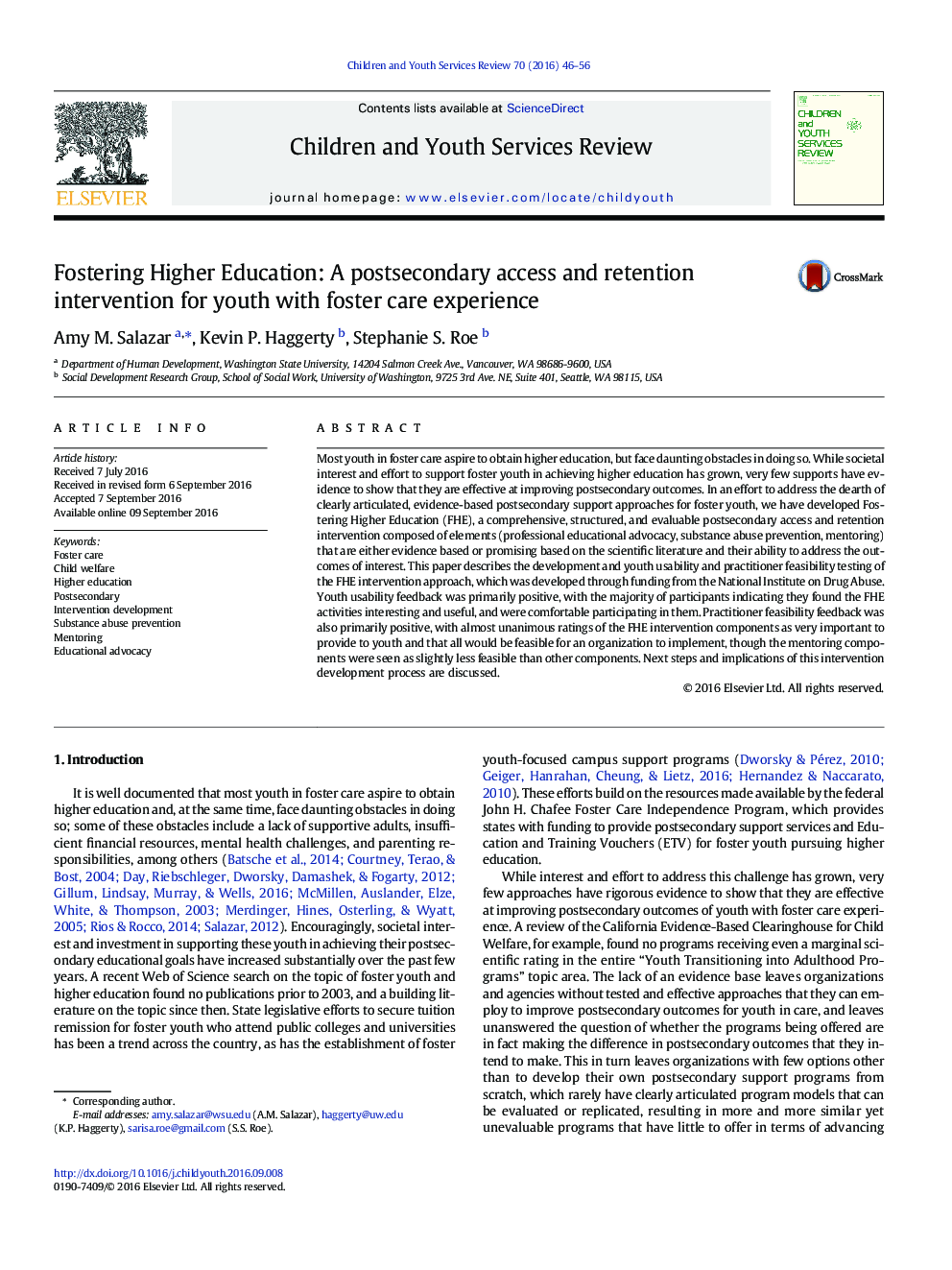| Article ID | Journal | Published Year | Pages | File Type |
|---|---|---|---|---|
| 4936619 | Children and Youth Services Review | 2016 | 11 Pages |
Abstract
Most youth in foster care aspire to obtain higher education, but face daunting obstacles in doing so. While societal interest and effort to support foster youth in achieving higher education has grown, very few supports have evidence to show that they are effective at improving postsecondary outcomes. In an effort to address the dearth of clearly articulated, evidence-based postsecondary support approaches for foster youth, we have developed Fostering Higher Education (FHE), a comprehensive, structured, and evaluable postsecondary access and retention intervention composed of elements (professional educational advocacy, substance abuse prevention, mentoring) that are either evidence based or promising based on the scientific literature and their ability to address the outcomes of interest. This paper describes the development and youth usability and practitioner feasibility testing of the FHE intervention approach, which was developed through funding from the National Institute on Drug Abuse. Youth usability feedback was primarily positive, with the majority of participants indicating they found the FHE activities interesting and useful, and were comfortable participating in them. Practitioner feasibility feedback was also primarily positive, with almost unanimous ratings of the FHE intervention components as very important to provide to youth and that all would be feasible for an organization to implement, though the mentoring components were seen as slightly less feasible than other components. Next steps and implications of this intervention development process are discussed.
Keywords
Related Topics
Health Sciences
Medicine and Dentistry
Perinatology, Pediatrics and Child Health
Authors
Amy M. Salazar, Kevin P. Haggerty, Stephanie S. Roe,
